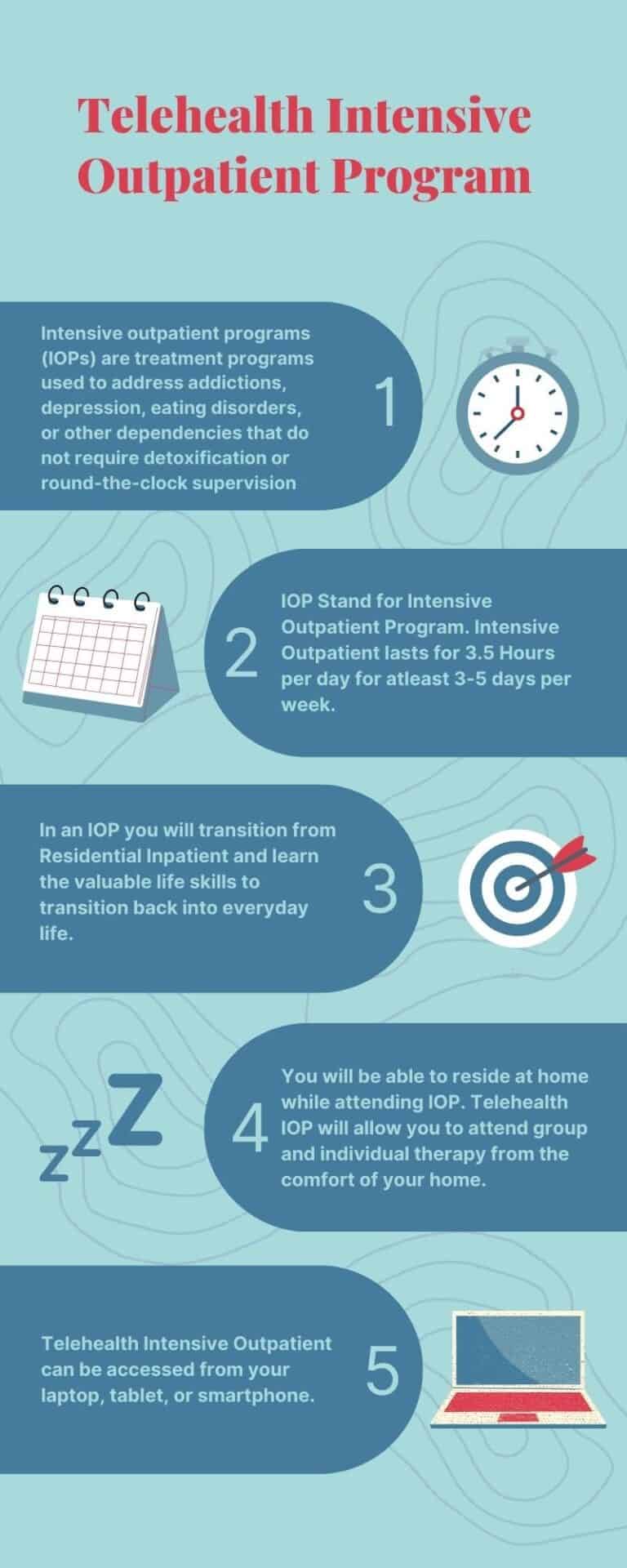Browsing the Intricacies of Double Medical Diagnosis Therapy Within an Intensive Outpatient Program Establishing
In the realm of psychological health and wellness and dependency treatment, the crossway of twin medical diagnosis provides a nuanced difficulty that requires a comprehensive and customized strategy. By checking out the intricacies of double medical diagnosis therapy within this intensive outpatient context, a clearer path emerges in the direction of holistic and sustainable healing for those grappling with these linked obstacles.
Twin Diagnosis Summary
What is the relevance of comprehending double diagnosis in mental health therapy? It is critical to identify and resolve this comorbidity as it can substantially affect the efficiency of mental wellness therapy.
Understanding twin diagnosis is essential as it calls for a detailed and integrated strategy to therapy. By acknowledging the interaction between material use and psychological health and wellness, healthcare providers can tailor treatments to meet the one-of-a-kind requirements of each person. This alternative strategy not only addresses signs and symptoms however likewise targets underlying aspects that add to the double medical diagnosis.
Moreover, untreated double diagnosis can lead to a cycle of regression and worsening psychological wellness symptoms. By identifying the intricacy of double medical diagnosis and providing customized care, medical care professionals can support people in attaining long-term healing and boosted psychological health.
Tailored Treatment Plans
Identifying the intricate interplay between compound usage disorders and psychological health conditions, the advancement of customized therapy strategies is paramount in dealing with the intricacies of twin medical diagnosis in psychological wellness treatment. Tailored treatment plans are customized methods that take into consideration the special demands, obstacles, and objectives of individuals facing dual diagnosis. These plans are developed collaboratively by a multidisciplinary team of specialists, including psychiatrists, psycho therapists, social employees, and dependency professionals, to ensure comprehensive and integrated treatment.
Tailored treatment strategies usually involve a mix of treatments, drugs, and behavioral interventions that target both the compound use disorder and the mental health problem simultaneously. These plans may consist of cognitive-behavioral treatment, dialectical behavior modification, medication-assisted treatment, individual counseling, team treatment, and family treatment, to name a few evidence-based treatments. By customizing therapy approaches to specific conditions, customized plans can address the source of double diagnosis, promote lasting recuperation, and enhance overall lifestyle for people fighting with co-occurring disorders.
Integrated Treatment Technique

In addition, the social aspect of incorporated treatment involves attending to ecological factors that might add to the development or perpetuation important usage and mental health and wellness concerns. This can include household characteristics, real estate instability, or lack of social support. By including social treatments like family original site therapy, vocational support, and neighborhood sources, the therapy becomes much more all natural and customized to the person's details needs. Overall, an integrated treatment strategy in dual diagnosis therapy within an extensive outpatient program setup intends to supply thorough, reliable, and personalized like individuals dealing with co-occurring disorders.
Challenges in IOP Establishing
In the context of twin medical diagnosis treatment within an intensive outpatient program, navigating the intricacies of co-occurring material use disorders and mental wellness problems provides significant challenges. Among the main obstacles in the IOP setting is the control of care between psychological health and wellness professionals and chemical abuse experts to guarantee a comprehensive therapy technique. This needs efficient interaction, partnership, and a deep understanding of how these problems communicate and affect each other.
Additionally, the fluctuating nature of material usage problems and mental health problems adds one more layer of complexity - Intensive Outpatient Program (IOP). Customers in an IOP might experience unexpected changes in their signs or substance food cravings, requiring punctual intervention and modification of treatment methods. Balancing the strength of therapy and assistance while allowing clients the adaptability to manage their day-to-day responsibilities can be a fragile stability to preserve
Moreover, attending to stigma and resistance to treatment within the IOP setup can impede development. Some people may be hesitant to reveal their dual diagnosis or might really feel ashamed, impeding their engagement in the restorative procedure. Overcoming these barriers demands a supportive and non-judgmental atmosphere that cultivates trust and openness.

Collaborative Specialist Initiatives

Joint initiatives likewise expand to normal interaction and information sharing among team members to guarantee a cohesive treatment technique. Eventually, a Website joined front of professionals working together enhances the effectiveness of double diagnosis treatment within an intensive outpatient program.
Conclusion
Finally, efficient double diagnosis treatment within an intensive outpatient program setting requires tailored therapy strategies and an incorporated treatment technique. Obstacles might arise in this setup, yet joint initiatives among experts can help navigate these intricacies. By resolving the one-of-a-kind demands of individuals with co-occurring mental wellness and substance utilize disorders, IOP programs can offer thorough and all natural like support recuperation and overall well-being.